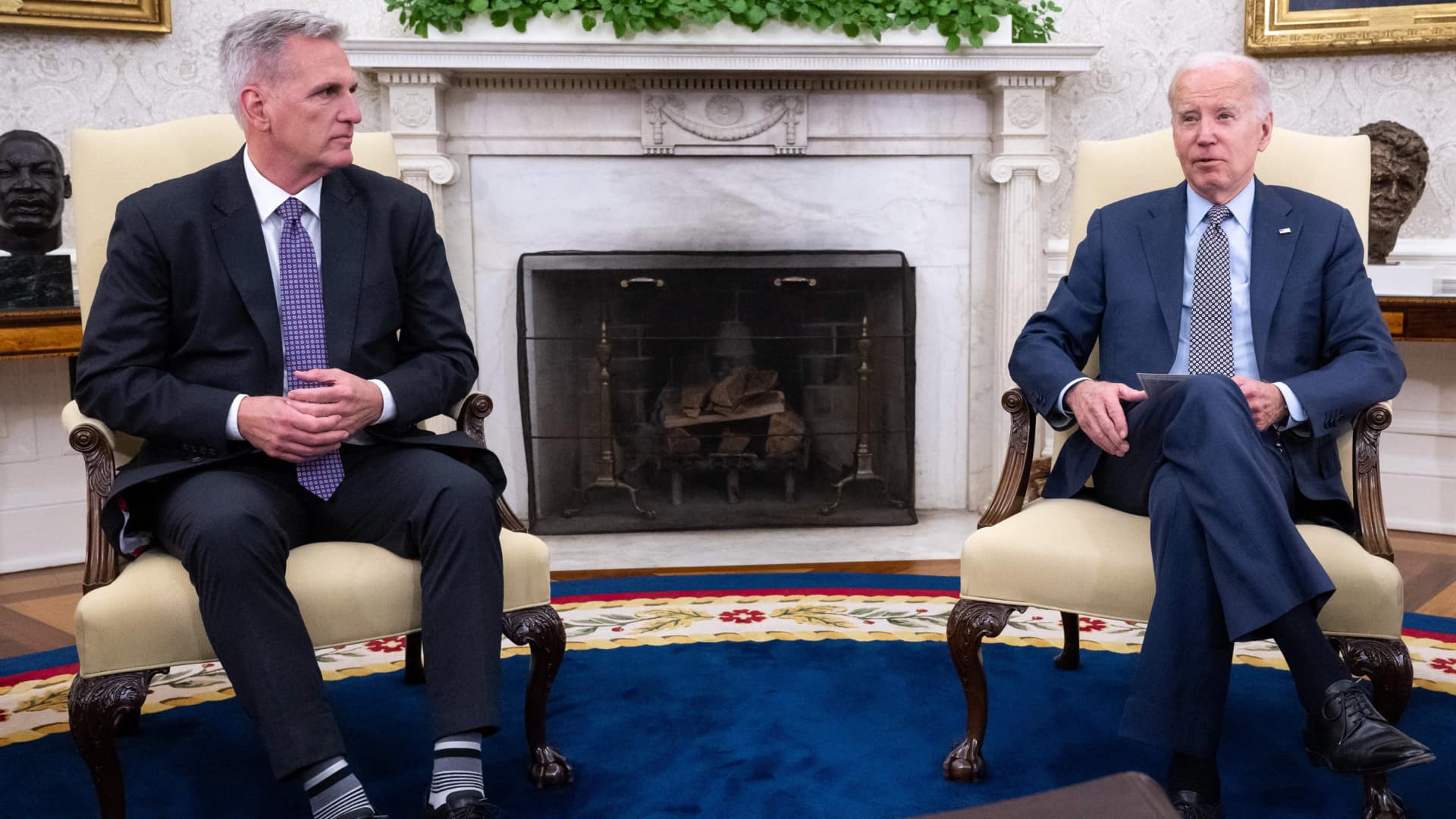Products You May Like
As President Joe Biden and House Speaker Kevin McCarthy, R-Calif., continue to negotiate ahead of a June debt ceiling deadline, experts are warning that Social Security checks could be at risk if there is a default.
Based on the payment schedule for those monthly payments, the oldest and poorest beneficiaries could be the first who may have their payments affected, according to Kathleen Romig, director of Social Security and disability policy at the Center on Budget and Policy Priorities.
“That would be devastating for those people, because they rely on their benefits so much,” Romig said.
If lawmakers fail to reach an agreement, U.S. could default on its debt as soon as June 1, according to Treasury Secretary Janet Yellen. That, in turn, would interfere with the Social Security benefits slated to go out the first week of June, Romig said.
More from Personal Finance:
House Democrats move to renew Social Security reform proposal
U.S. households are hitting their own debt ceiling
What the debt ceiling standoff means for money market funds
Beneficiaries scheduled to receive payments that week include those who started receiving Social Security before May 1997 who are age 88 or older, noted Romig.
In addition, Supplemental Security Income benefits are paid that week for those who receive benefits either exclusively through that program or in combination with Social Security. Supplemental Security Income, or SSI, provides monthly checks to adults and children with disabilities or blindness, as well as people age 65 and up with limited financial resources. To qualify for SSI, beneficiaries generally must have income and resources below certain thresholds.
Because SSI beneficiaries face a $2,000 asset limit including all their financial resources, they do not have a cushion to fall back on if they do not receive their checks, Romig noted.
“They are the most immediately at risk in a default scenario,” Romig said. “They really don’t have a fallback.”
Other beneficiaries’ checks may be affected if the situation continues. Benefit payments are scheduled for the second, third and fourth Wednesday for other Social Security beneficiaries based on their birth dates.
Some experts say it’s unlikely the debt-ceiling debate will reach that point.
“If there is a scenario where seniors are not getting their Social Security checks, there would be a near immediate resolution of this fight,” Ed Mills, Washington policy analyst at Raymond James, previously told CNBC.com.
The National Committee to Preserve Social Security and Medicare has warned that Social Security, Medicare, Medicaid and other payments “may not be made on time and in full” without a debt limit increase.
If there is a scenario where seniors are not getting their Social Security checks, there would be a near immediate resolution of this fight.Ed Millsanalyst at Raymond James
“Even if all we’re talking about is a delay, you could end up with significant hardship on a large number of people,” said Maria Freese, senior legislative representative at the National Committee to Preserve Social Security and Medicare.
‘Best educated guesses’ on what could happen
The debt ceiling is the maximum amount of money the U.S. government can borrow to pay its bills. While Washington has been up against the debt ceiling before, it has never defaulted on its financial obligations.
“There is not a road map for a default,” Romig said.
There is, therefore, much debate as to what could happen with Social Security benefits and other federal payments that Americans rely on, including whether Washington would be able to prioritize certain categories.
“We’re all taking our best educated guesses based on what the laws say and what we know Treasury is capable of doing,” Romig said.
The government relies on payroll taxes and Social Security’s trust funds, which include $2.8 trillion in Treasury bonds, to pay benefits.
If the U.S. were to default, that would include those government bonds, Romig said.
